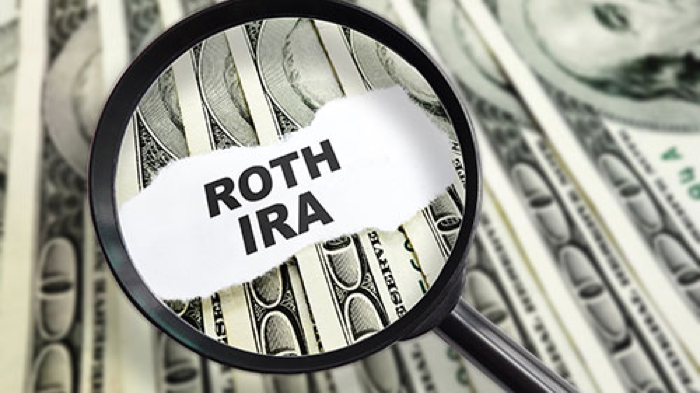What Are Roth IRA Conversions?
As you plan for retirement, it’s important to invest your money in a way that maximizes your income in your senior years. In some cases, a Roth IRA...
Manage your everyday finances with convenient accounts, flexible cards, and personalized service designed to fit your life.
At First Federal Bank, we offer flexible mortgage solutions for almost any situation, helping you secure the right financing for your dream home.
Business banking offers secure financial management, streamlined transactions, credit options, and tools to help businesses grow efficiently and sustainably.
2 min read
First Federal Bank : February 7, 2024 10:00:00 AM EST

 An individual retirement account (IRA) can be a powerful tool for investing and saving your money — especially when you manage it wisely. If you’re looking for ways to make the most of your IRA, start by reviewing these commonly asked questions.
An individual retirement account (IRA) can be a powerful tool for investing and saving your money — especially when you manage it wisely. If you’re looking for ways to make the most of your IRA, start by reviewing these commonly asked questions.
What investments can I make with an IRA?
You can choose from a wide range of IRA investment options to match your asset-allocation strategy, risk tolerance, and financial needs. Most accounts let you invest in low-risk assets like bonds, Treasury bills, and money market funds. You can also opt for mutual funds, index funds, and exchange-traded funds. If you’d prefer a more hands-on approach, you could invest in individual stocks and bonds as well. In an article for Investopedia, Mark P. Cussen notes the IRS does prohibit a few investment types within IRAs, including life insurance contracts, certain types of derivatives, and real estate for personal use.
How do IRA contributions work?
IRA contribution limits change each tax year. For 2024, you can contribute a maximum of $7,000 in earned income to your traditional IRA, or $8,000 if you’re over 50 years old. You can contribute to multiple IRAs, but the annual limit is for all of them combined. Each year, you’ll have until the end of the tax year in April to reach your contribution limit. However, Andrea Coombes points out in an article for NerdWallet contributing the maximum early in the tax year gives your money more time to grow. If that’s not an option, you can also make smaller contributions or set up automatic payments throughout the year.
How do IRA taxes work?
The money you contribute to a traditional IRA is tax-deductible with certain limits. If you don’t have access to retirement savings through a plan at work, you can deduct your full contribution amount each year — plus, if you have a low or moderate income, you could also qualify for even more tax relief via the saver’s credit. If you or your spouse are covered by a work plan, your deduction will be tied to income thresholds set by the IRS for that tax year. Once your money is in the IRA, it will grow tax-free until you withdraw it in retirement.
When can I withdraw money?
If you have a traditional IRA, you can withdraw money starting at age 59½, and it will be treated as normal taxable income. Once you reach age 73, you’ll need to take a required minimum distribution from your account each year. Early IRA withdrawals are subject to a tax penalty, but the IRS does make several exceptions. These include withdrawals for a first-time home purchase, unreimbursed medical expenses, qualified college expenses, or a permanent disability.
What about a Roth IRA?
Roth IRAs and traditional IRAs have some crucial differences, starting with taxes. When you contribute to a Roth IRA, the money is taxed right away — meaning it won’t be taxed when you withdraw it in retirement. This can be especially helpful if you expect to retire in a higher tax bracket. Roth IRAs also allow you to make a much wider array of tax-free withdrawals before retirement. However, you can only contribute to a Roth IRA if your annual earned income is under a limit set each year by the IRS.
Now that you know about the basics of managing an IRA, you can start putting your money to work for your goals. Be sure to consult with a financial professional for further insight about the best ways to maximize your IRA.

As you plan for retirement, it’s important to invest your money in a way that maximizes your income in your senior years. In some cases, a Roth IRA...

Once you’ve achieved your goal of retirement, making your well-earned income stretch as much as possible becomes a chief priority. Structuring your...

A 401(k) plan may be ideal when it comes to saving for retirement. Still, it’s possible to meet ambitious retirement goals even without one. If your...
Manage your accounts, make payments, and more.
Open an account with us.